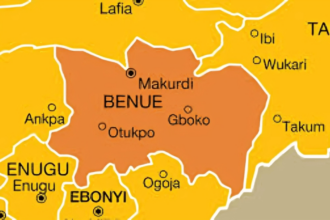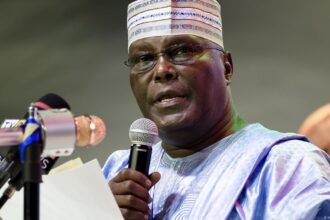…says generation capacity has hit 6,003MW milestone
…FG to Pay N2trn GenCo debt by year-end
Nigeria’s power sector has recorded a significant leap in revenue generation, with an additional ₦700 billion realised in 2024, marking a 70% increase year-on-year.
This was disclosed by the Minister of Power, Adebayo Adelabu, during a ministerial press briefing held on Thursday in Abuja, where he highlighted key achievements of the ministry under the Renewed Hope Agenda of President Bola Ahmed Tinubu.
The Minister attributed this landmark growth to recent cost-reflective tariff reforms targeted at Band A customers, which raised total market revenue from ₦1 trillion in 2023 to ₦1.7 trillion in 2024.
“This growth is unprecedented,” he noted. “It is the first time we’re witnessing such a sharp increase, far above the previous record of 20%. More importantly, this has led to a 35% reduction in the government-subsidised tariff shortfall – down from ₦3 trillion to ₦1.9 trillion. It demonstrates that financial viability and service delivery can coexist harmoniously.”
Speaking on broader sector reforms, Adelabu pointed to the formulation of two critical frameworks – the
National Integrated Electricity Policy (NIEP) and the Integrated Resource Plan (IRP)- as pivotal steps in redefining Nigeria’s energy future. Both frameworks, he said, are geared towards building a cost-effective and sustainable electricity ecosystem and have been submitted to the Federal Executive Council for approval.
Other highlights of the past 100 days include the inauguration of the National Independent System Operator (NISO) to unbundle the Transmission Company of Nigeria, as mandated by the Electricity Act of 2023.
The new entity will oversee grid operations independently, aimed at boosting efficiency and market transparency.
The sector also achieved a milestone generation capacity of 6,003MW, the highest in Nigeria’s history, with an average daily generation of 5,700MW in early 2025, compared to 4,100MW in Q3 of 2023 – representing a 40% increase.
“What took four decades to achieve in terms of 2,000MW of additional power, we have delivered in under two years,” the Minister said.
Further gains were reported in transmission stability.
“Despite persistent grid disturbances last year, we have not recorded a major grid collapse in the first quarter of 2025,” he said, citing completed transformer installations and mobile substations across over 12 states.
The Ministry also spotlighted gains in renewable energy and rural electrification, including new off-grid and mini-grid projects across Plateau, Niger, Cross River, Osun, and Oyo States, providing clean electricity to thousands of households.
Additionally, investments are underway to evacuate full capacities from key hydropower stations like Zungeru and Kashimbila, while the Kaduna Thermal Plant is being restored after six years of dormancy.
Adelabu reaffirmed the government’s commitment to partnering with the private sector, noting that proposals from Sun Africa Energy and Skipper Electric to scale up solar power and grid expansion are currently under review.
“Our vision is bold, but it is achievable – a Nigeria where power no longer hampers progress but powers it,” he stated.
Adelabu assured power generation companies (GenCos) that the federal government will pay at least ₦2 trillion of the ₦4 trillion debt owed them before the end of 2025 in a bid to avert potential disruptions to electricity supply.
His remarks follow threats by GenCos to declare force majeure on their operations if the mounting debt remains unpaid.
While acknowledging the financial strain, Adelabu said the government may not be able to clear the entire amount immediately but is committed to defraying half the liability by year’s end.
He explained that the payment would be made through a mix of cash and promissory notes, the latter of which can be discounted by banks to provide GenCos with immediate liquidity.
“We’re not promising 100% payment, but we’re working to settle close to ₦2 trillion of the debt this year,” Adelabu stated during a briefing. “There are already budgetary provisions for cash disbursement, and we’re also discussing the issuance of guaranteed debt instruments, such as promissory notes, which the GenCos can take to banks for discounting if they need quick access to funds.”
The minister clarified that the debt stems from unpaid subsidies, with nearly half inherited from previous administrations and the rest accumulating from ongoing operations in 2024.
“This issue has been of serious concern to us,” Adelabu said.
“I’ve had tough discussions with the Minister of Finance and the Coordinating Minister for the Economy, who confirmed that work is ongoing to finalise the promissory notes. Once budget releases are made, cash payments will follow.”
He also acknowledged broader challenges confronting the power sector, including the ₦4 trillion debt burden, vandalism of infrastructure, and a lack of sufficient investment. Despite these issues, Adelabu reaffirmed the Tinubu administration’s commitment to clearing all inherited liabilities and restoring investor confidence in the sector.
“The administration is determined to turn things around. Clearing these debts is a critical step toward stabilising the sector and attracting much-needed investment,” he added.
ALSO READ TOP STORIES FROM NIGERIAN TRIBUNE








